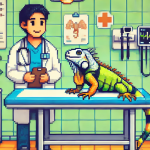
How Pets are Helping Researchers Decode Alzheimer’s Disease
Recent discoveries reveal that pets, particularly cats, may develop dementia in a manner akin to humans. This breakthrough opens new pathways for Alzheimer’s research, potentially reshaping how scientists develop treatments for humans. (BBC News)
The Link Between Feline and Human Dementia
Researchers in Edinburgh have identified similarities in the progression of dementia in cats and humans, primarily focusing on protein buildup in the brain. This finding could aid in creating more effective treatments for Alzheimer’s in humans by providing a better understanding of the disease’s mechanisms (BBC News)
Why This Matters
- Understanding Complex Diseases: By studying domestic animals that naturally develop dementia, scientists can observe how the disease progresses and how environmental factors might influence it.
- Accelerating Research: Pets provide an accessible population for clinical studies, which may lead to quicker advancements in therapeutic strategies.
Potential Real-World Applications
Aside from advancing Alzheimer’s research, studying animal dementia opens doors to:
- Veterinary Medicine Improvements: Treatments for pet dementia could evolve, improving pet quality of life.
- Breeding and Adoption Insights: Understanding which breeds are more susceptible may inform pet care and breeding practices.
Challenges Ahead
Despite promising findings, several challenges remain:
- Genetic and Phenotypic Variations: Differences between species mean that not all findings in pets will directly translate to humans.
- Ethical Considerations: Conducting experiments on pets must balance scientific gain with animal welfare.
Research linking animal and human health has always been a bridge to scientific advancement. The newfound parallels between feline and human dementia invite a reimagined future in treating Alzheimer’s disease.




